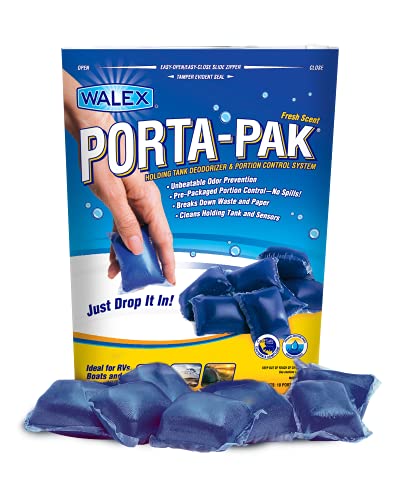When you're traveling or camping, nothing beats having a working toilet in the RV. It prevents you from having to wander into the woods to take a bathroom break. But one aspect that many forget is maintaining the plumbing system of the RV's toilet. As you search online, you will find many recommendations to use chemical cleaners to help ensure your toilet doesn't run into problems. If you're wondering how often you need to use RV toilet chemicals, let's look at what the experts have to say.
In general, you should use RV toilet chemicals after you've emptied the black tank. It should go into the tank in combination with fresh water. This way, you ensure it doesn't dry out. Without moisture, you will get a buildup of gunk that will stink up the toilet. Adding more water and chemical treatments keeps the odors and buildups at bay.
Now that you know when to apply chemical treatments to your toilet, it might be good to know what else to consider. After all, an RV toilet isn't the same as a standard toilet. You need more hands-on work to ensure there aren't blockages or odors in the near future. Additionally, you might want to know what kind of chemicals to avoid using. If you'd like to learn this and more, keep reading ahead.
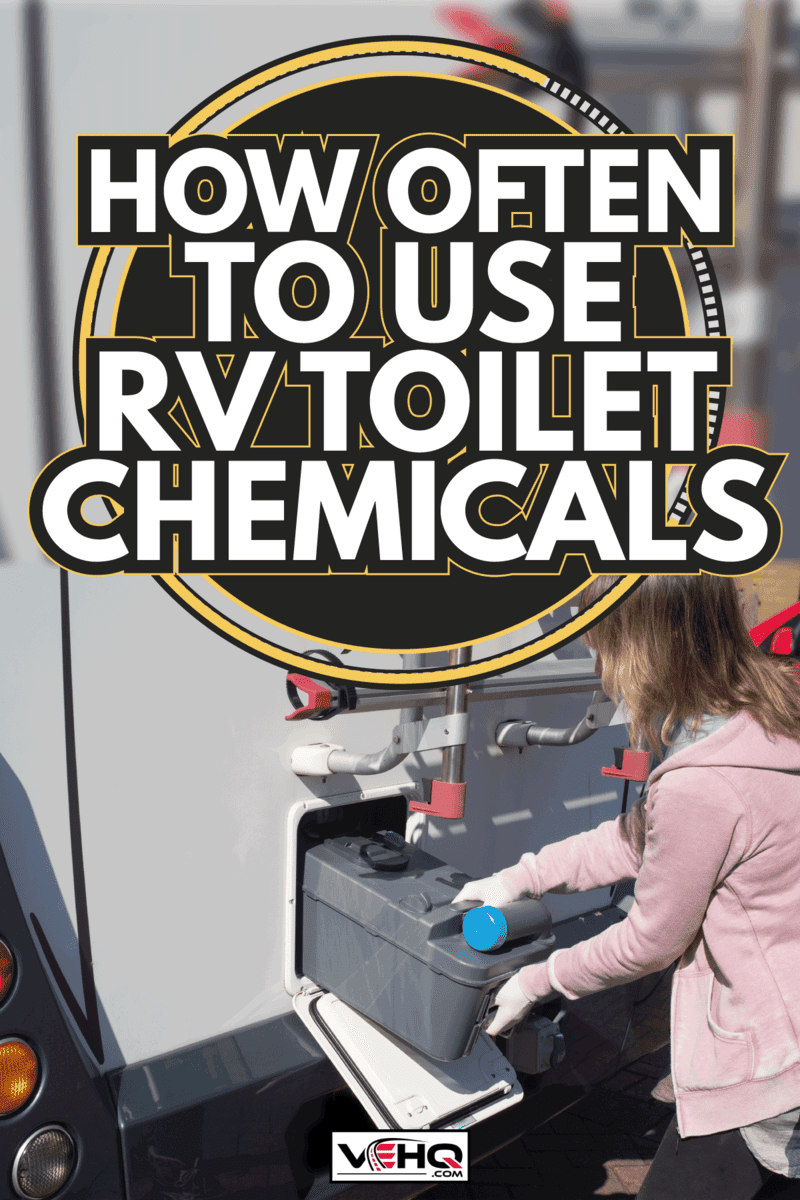
How Do You Maintain an RV Toilet?
As mentioned, you should use RV toilet chemicals when you've emptied the black tank. It begs the question, how do we maintain an RV toilet? Will a chemical cleaner and additional water be good enough? No, there's still more to consider.
But first, why do you need to add RV toilet chemicals in the first place? You'll have to think of it as an aid. They're not as strong as the chemicals you would typically use for your home toilet.
It contains bacteria or enzyme compositions that help break down waste and toilet paper. Without it, there's a high chance that the waste and toilet paper will form clumps in some areas of the black tank.
Once they've collected a fair amount, it results in blockages and nasty odors that you wouldn't want to smell. For this reason, chemical cleaners contain bacteria that break down the obstructions to let them flow out of the system easily.
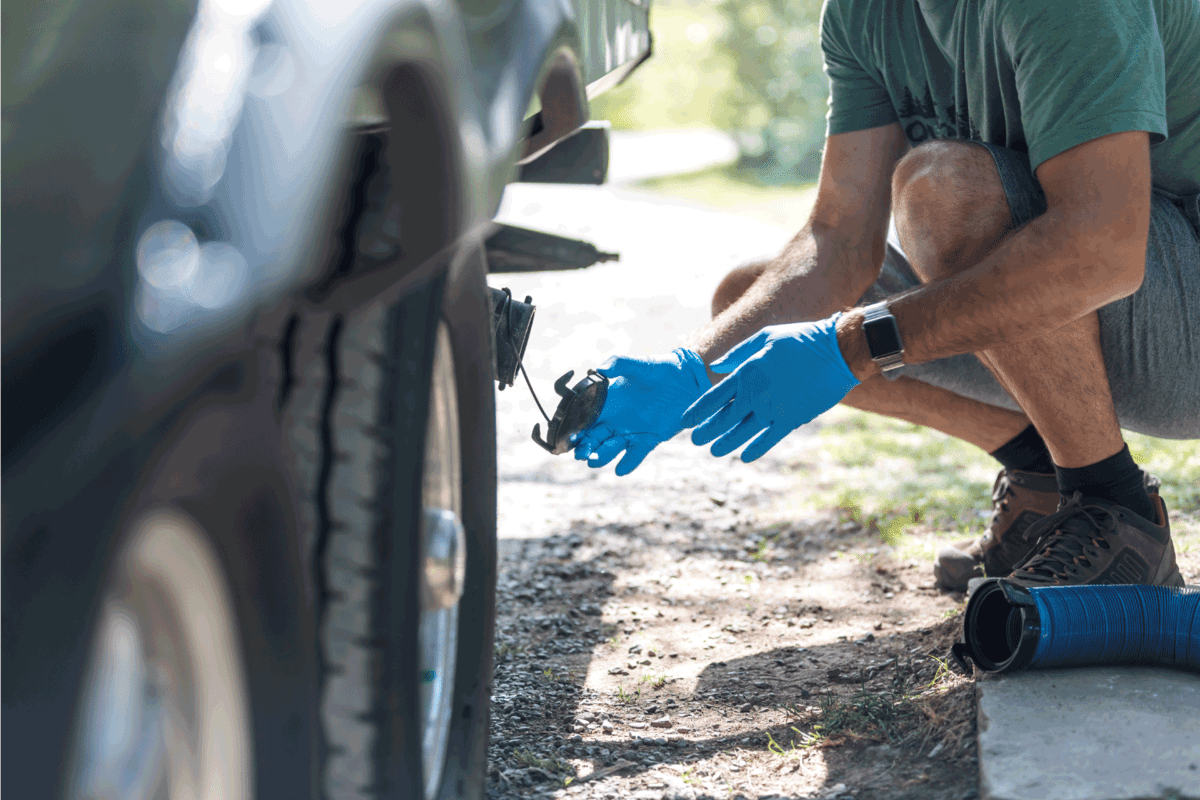
Maintaining the Black Tank
When you finally decide it's time to flush out your black tank, you'll need to consider the following.
How Long Can an RV Go Without Dumping?
Let's address the elephant in the room. How long can we go without dumping an RV's black tank? As a follow-up, we also need to figure out how we go about cleaning it out.
How long the black tank can go without dumping will depend on how frequently you use the bathroom. In general, you should dump it out every 3-5 days. Alternatively, consider dumping it when it is about two-thirds full.
Once you're ready to dump out the contents of the tank, you can:
- Put on a pair of gloves. You're going to be working with some nasty gunk. If you want to avoid getting any of it on you by accident, wear some protective clothing.
- Get a hose and connect it to the black tank water drain.
- Grab the other end of the hose and connect it to the wastewater port.
- Open the black water valve and empty it.
- You can open the grey tank valve to empty it too.
- Flush the hose.
- Disconnect the hose and stow.
Read more: How Often Do You Dump The Black Tank?
Adding Chemical Cleaners
Now that we've cleared the black tank of waste, we can move on and use a chemical cleaner. As some suggest, you'll want to start by adding a few gallons of water into the black tank.
The reason behind this process is that leaving the black tank without a good base of water will promote clumping. When too many clumps form, you can increase the potential for clogging problems or false readings of the tank.
After establishing a base of water for the blank tank, you can move ahead and add the chemical cleaner of your choice.
There are a couple of alternatives you have when treating your RV toilet with a chemical cleaner. You can choose between a liquid RV cleaner or a dissolving pack/tablet.
With a liquid-based cleaner, you'll have to follow the manufacturer's instructions. On the other hand, dissolving packs come pre-portioned. So all you have to do is take one and flush it into your black tank. We'll include two examples of cleaners.
Click here to see this liquid cleaner on Amazon.
Click here to see this cleaner pack on Amazon.
Repeat this process whenever you need to clean the black tank. That should conclude black tank maintenance!
Are RV Toilet Chemicals Safe for Septic Tanks?
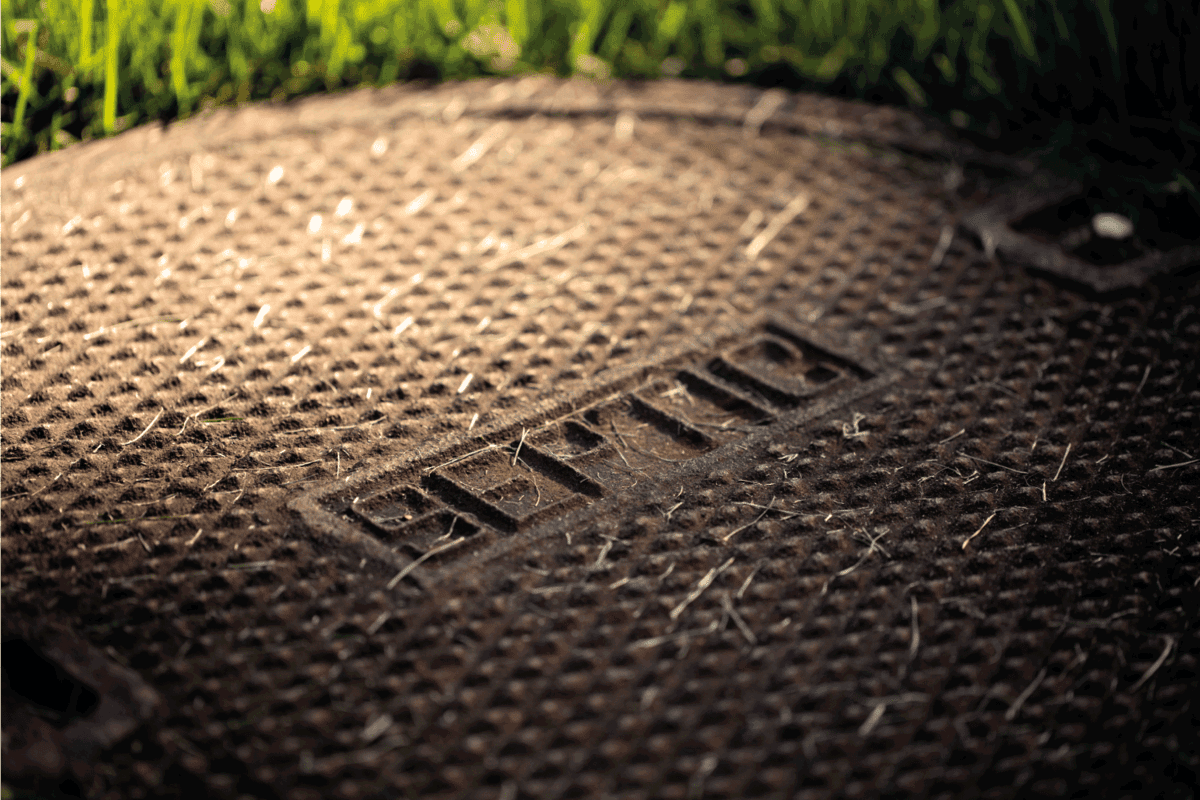
Now we run into a small problem. If we're treating the RV's sewage system with chemicals, is it safe to dump the contents in a septic tank?
It's an understandable concern. You should always proceed with caution when you're working with things you aren't too sure about. Luckily for us, the EPA does make an effort to address this issue.
According to the EPA, you have to be careful when you're dumping the contents of your black tank into a septic tank. The reason is that some products use chemicals that can pollute water resources.
As a result, you might be creating environmental and health hazards within the area.
It gets worse from there. Some RV toilet chemicals also have the potential to corrode system treatment parts. So, you'll also be causing a safety hazard.
When Chemicals Are Added Into a Septic System
It's good enough to have an idea of why you should proceed with caution when using chemical cleaners in your RV toilet. But it's equally important to know why it may harm a septic system.
If you didn't know, septic tanks harbor microorganisms that aid in the breakdown of waste. When you dump a black tank treated with a chemical cleaner, you risk the potential of killing off these microorganisms.
One of the chemicals that can kill the beneficial bacteria present in septic tanks is formaldehyde. When the bacteria is not there to complete the breakdown process, solids will be allowed to pass. As a result, you can get clogging in the leach field.
In this case, we can witness a domino effect. Meaning, clogging isn't the only issue that will appear with the disappearance of microorganisms. In the worst case, the wastewater will contaminate nearby drinking water, rivers, and streams.
Avoiding a Bad Situation
Now that we know the harm we can cause, it's crucial to learn how to avoid this situation.
The EPA recommends avoiding the frequent use of deodorizers by using rest stop facilities whenever you can. Additionally, if you still plan on using one, read the instructions carefully.
Instead of using a cleaner with harsh chemicals, you can opt for bio-degradable products. Of course, you should always follow the manufacturer's instructions on how to use the cleaner.
Can You Put Bleach in RV Black Water Tank?
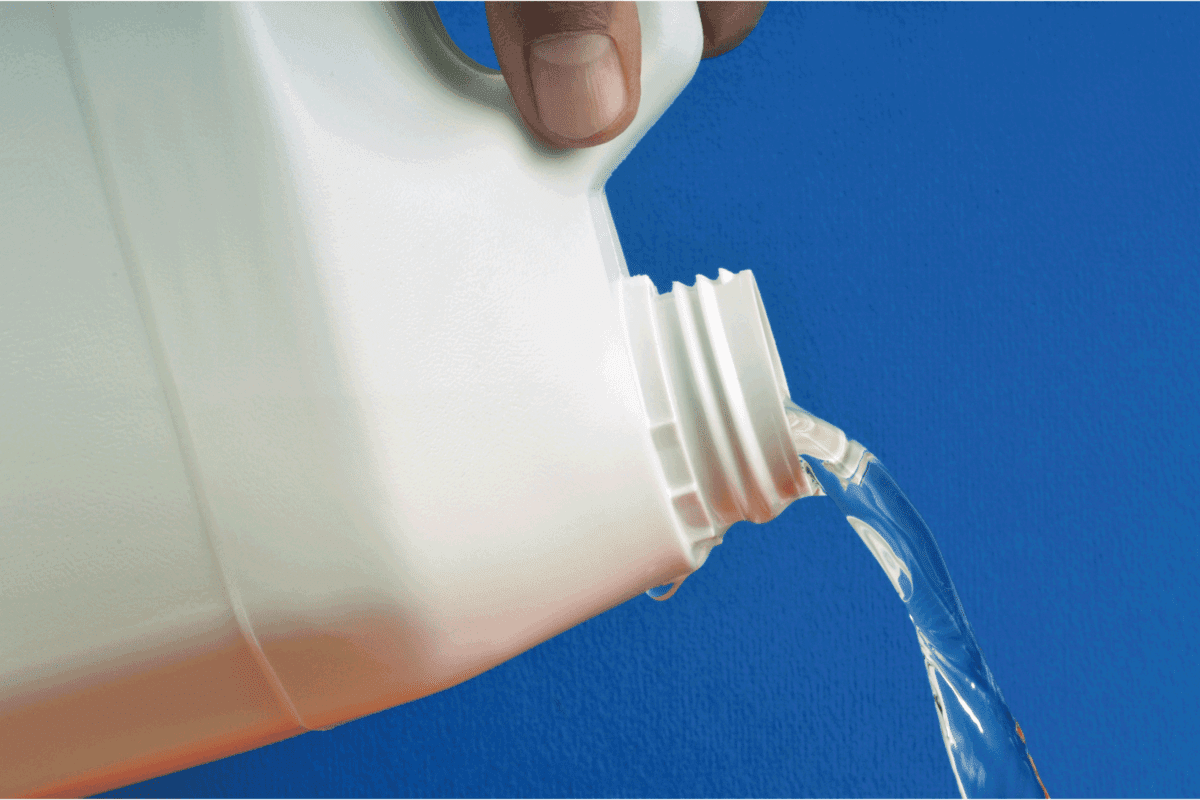
If you'd like to tackle the odor and waste problem in your black tank with bleach, it's another case where you will need to proceed with caution.
Some suggest it's fine to use bleach in a black water tank as long as it's a diluted blend. So, you'll have to know what you're doing if you're going with the bleaching approach.
Otherwise, you risk damaging the seals and gaskets in your RV. In addition, you'll also kill the beneficial bacteria present in the black water tank.
As you've read in the previous section about septic tanks, your black water tank also contains microorganisms/enzymes that help break down waste. Without them, you'll have nothing to break down solids and eliminate odors.
In one user's experience, adding bleach made the situation a lot worse. So, it's best to avoid using bleach if you can. Otherwise, look for a guide and diluted solution.
Why Does My RV Smell Like Rotten Eggs?
Speaking of odors, one smell you might notice lingering in the RV is one that resembles rotten eggs. You might think the smell is coming out of the toilet. But some suggest it comes from anaerobic bacteria reacting with sulfur or magnesium of the anode rod.
Now that we know our culprit, we can go over some ways to eliminate the odor. To get rid of the rotten egg smell, you can:
- Replace the anode rod
- Descale and drain your RV water heater
- Rinse the tank with vinegar
If the smell still lingers, there might be something else causing it. In this case, you'll have to inspect other areas of the RV. The smell might be coming from a propane leak, overcharged RV batteries, or open dump valves.
Final Takeaway
When you're looking to maintain your RV toilet, you might have to mess with unfamiliar chemicals. It's crucial that you become aware of what they do.
This way, you can avoid clogging and odor issues. Additionally, you can avoid creating environmental and health hazards. We hope you found the information above helpful!
Before you go, do you have other RV concerns? Do you need more options for an RV toilet cleaner? You can check out our post here for more ideas.
Is your black tank flush not working? We go over what you can do in this situation in our post here. Until next time!


